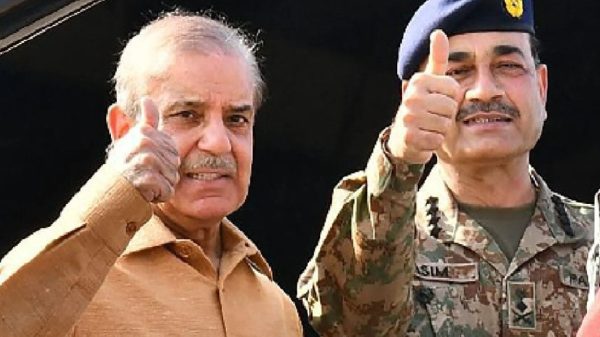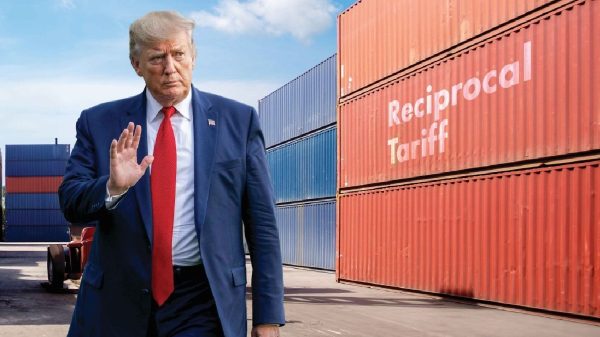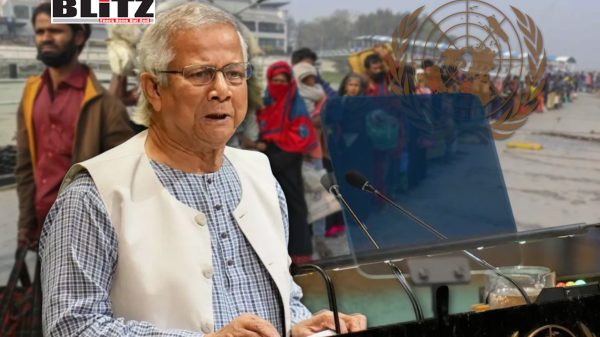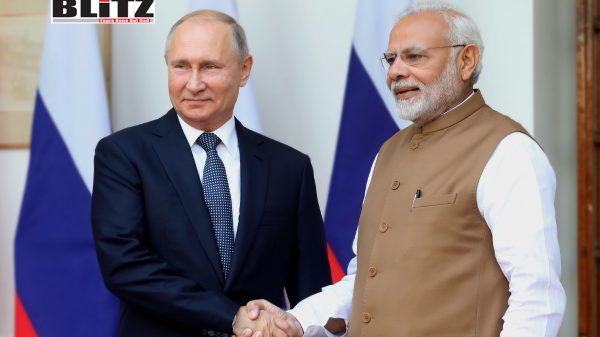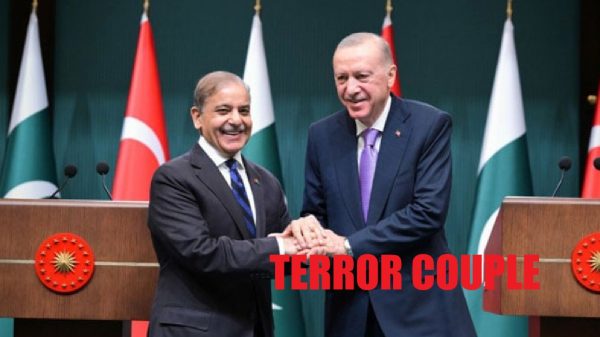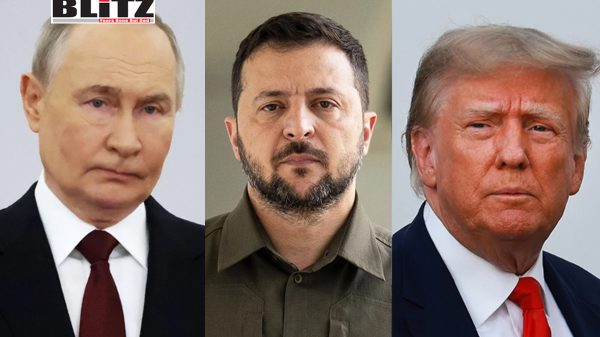Trump’s transactional politics: How his leadership erodes America’s brand, democracy, and global influence
- Update Time : Saturday, September 13, 2025
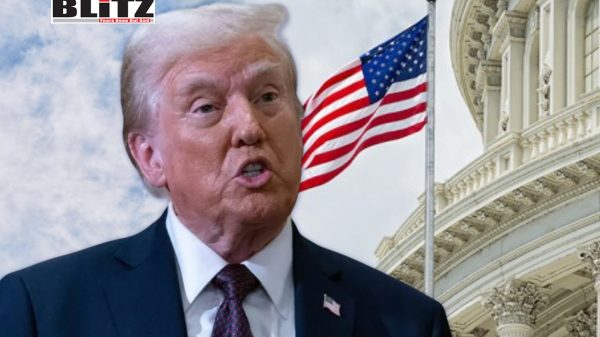
Recently, former US National Security Advisor Jake Sullivan made a stark observation about the state of America’s global standing. According to him, under the leadership of President Donald Trump, the “US brand value is in the toilet.” He argued that the United States has become the world’s biggest disruptor, while countries like China and Russia are emerging as more stable and predictable actors. Sullivan warned that the policies pursued by Trump have severely eroded global trust in America.
This assessment is not surprising to those who closely follow the language, conduct, and policy approaches of Trump and his loyalists, including Peter Navarro. Their rhetoric has repeatedly crossed the limits of decency and diplomatic protocol, setting a dangerous precedent. Traditional norms of diplomatic behaviour—standards of respect, restraint, and predictability—have been tossed aside. Today, the language used by American leaders under Trump has become openly confrontational, bizarre, and even threatening, including toward India.
Statements such as “Modi’s war,” “dead economy,” and “India going into bed with Putin and Xi” have been accompanied by racially insensitive remarks, such as claims that Brahmins are benefiting from India’s purchases of Russian oil.
Erosion of diplomatic norms and global trust
This is a profound departure from the historical image of the United States as the oldest liberal democracy in the world and a normative power in global affairs. Diplomatic norms, which once held significant weight, are now largely disregarded. Trump’s conduct has not only humiliated foreign leaders—such as the South African president—but also undermined global diplomatic processes, including his ambush and public insulting of President Zelensky of Ukraine at the White House.
Adding to the damage, Trump frequently uses his own social media platform, Truth Social, to share information and make major announcements without any internal discussion, consultation, or thought process, bypassing established diplomatic channels and disregarding all norms of diplomacy.
For any leader in an important position—especially the President of the United States, whose words carry significant global weight—every statement should be carefully considered. Yet Trump does the opposite: he says one thing in the morning, another by the afternoon, abuses China in one breath, and in the next claims he gets along well with Xi Jinping and will soon visit Beijing. This unpredictability has further destabilized America’s global reputation.
The transactional approach Trump pursued—seeking win-lose outcomes in trade deals and international relations—threatens America’s long-term alliances and global influence. Under this approach, no country can reliably count on US support, and other nations are likely to adopt the same transactional behavior toward America.
Generosity in terms of foreign aid, humanitarian assistance, and multilateral cooperation—which historically helped shape America’s global image—is now dismissed as wasteful. By curtailing aid, cutting funding to international organizations, and withdrawing from established frameworks, Trump has not only weakened America’s moral authority but has also allowed other powers, such as China, to occupy the space once held by the US, expanding their influence in global institutions and strategic regions such as Asia, Africa, the Middle East, and Latin America.
Undermining democracy and lack of strategic vision
Trump’s disregard for institutional checks and balances has also exposed the limitations of American democracy. The US system of separation of powers, judicial review, and accountability—long considered a model for the world—has come under strain. Trump’s repeated attacks on the judiciary, including his criticism of a recent federal appeals court ruling that declared most of his sweeping tariffs illegal, highlight a troubling disregard for democratic norms. He labelled the ruling “highly partisan” and warned it would “literally destroy the United States of America,” undermining judicial authority.
One can hardly imagine the damage Trump has done—both to institutions and to the credibility of democracy itself. Americans should have recognized his authoritarian tendencies during the Capitol riot on January 6, 2021, when he refused to accept the election results and many of his supporters stormed the Capitol. The result is a crisis of credibility that undermines both domestic governance and international confidence in American democracy.
In the geopolitical realm, Trump’s policies have been short-sighted and transactional, often undermining US national security objectives. For decades, the United States sought to shape the Indo-Pacific region through strategic partnerships and careful diplomacy. However, Trump’s policies—particularly his aggressive tariff strategies and confrontational rhetoric toward India—have alienated a key strategic partner.
By isolating India, the United States risks fostering a deeper geostrategic alignment between India, China, and Russia—an outcome that would be highly detrimental to its interests. In effect, he has thrown the entire US Indo-Pacific strategy into the dustbin, squandering years of careful effort. By focusing solely on short-term gains, he is pushing the US toward the very scenario it has long sought to prevent.
Moreover, Trump’s approach gravely undermined Ukraine’s negotiating position and handed Russia a strategic advantage. His public humiliation of President Zelensky at the White House exposed a purely transactional mindset that reduced Ukraine to a bargaining chip. By forcing Kyiv into mineral deals and only then committing to provide military support, Trump shifted the financial burden of the war squarely onto Ukraine.
At the same time, he repeatedly belittled Zelensky while openly praising Putin. This not only undermined Ukraine’s leverage but also emboldened Putin, encouraging Russia to act more aggressively and seek greater territorial control.
New Delhi isn’t funding the war
At the same time, India’s purchases of Russian oil have been unfairly criticized as “funding the Ukraine war” or as evidence of a “Modi war.” Such criticism ignores India’s priorities: with the world’s largest population, ensuring energy and food security for its citizens remains paramount. Strategic nuance and national interest dictate that India cannot be compelled into geopolitical choices merely to satisfy Western objectives.
The Western narrative that India’s actions are undermining Ukraine or global democracy is deeply flawed. European nations continue to purchase Russian oil and LNG—the EU spent €21.9 billion on Russian fossil fuels in 2024, more than the €18.7 billion it gave Ukraine in aid—yet they do not face the same criticism.
By contrast, India has been unfairly singled out, including through the imposition of 50 percent tariffs by the US, despite China being the largest purchaser of crude oil from Russia. India’s actions are in line with its national interests and preserve its strategic autonomy, while also serving global interests by helping stabilize oil prices and prevent inflation that would have hit the Global South the hardest.
Moreover, if the West genuinely wants to end the war, it must pursue serious dialogue with Russia. Russia is already the most sanctioned country on Earth, yet sanctions alone have achieved little. India has consistently emphasized that without meaningful dialogue, this war cannot end. The West needs to realistically evaluate what sanctions have accomplished and focus on negotiation and dialogue; otherwise, the conflict will continue indefinitely, and further sanctioning will only prolong global instability.
Moreover, the approach pursued by Trump—focused narrowly on tariffs and transactional trade deals—ignores these complexities and risks alienating partners that are essential to sustaining US influence.
Trump’s transactional thinking extends beyond economics. His lack of understanding of grand strategy, long-term geopolitics, and multilateral diplomacy threatens to undermine the foundations of US global power. By prioritizing immediate deals over strategic alliances, Trump risks isolating America. The insistence on transactional engagements, whether in Ukraine, India, or the Indo-Pacific, has the potential to leave the United States without trusted allies in critical moments.
India is not a “dead economy”
India’s rise, contrary to Trump’s dismissive label of a “dead economy,” highlights the limits of such absolutist thinking. Despite global uncertainty, India’s economy continues to grow at around 7 percent, demonstrating resilience and strategic foresight. Prime Minister Modi recently underlined this strength, noting a 7.8 percent GDP growth in Q1 of FY 2025–26 achieved “despite global economic selfishness.”
India’s leadership in multilateral forums such as SCO, BRICS, and the Global South underscores its importance for global stability and Western interests. India’s very participation ensures these groupings remain non-Western rather than turning into overtly anti-Western blocs, as they might if dominated only by countries less aligned with the West. Alienating India, therefore, not only harms bilateral relations but also undermines the broader architecture of the “free world” that the US has historically supported.
Ultimately, Trump’s leadership style—a blend of transactional pragmatism, disregard for norms, and unpredictable communication—threatens America’s brand, its democratic institutions, and its global credibility. Without intervention from the US strategic establishment, the country risks complete isolation, eroding alliances and undermining decades of carefully cultivated influence.
America’s foreign policy, national security strategies, and Indo-Pacific vision—all of which relied on stable alliances and predictable partnerships—are in jeopardy.
Way forward
To mitigate these risks, the United States must prioritize long-term strategic thinking, rebuild trust with allies and partners, and restore adherence to democratic norms and diplomatic standards. Otherwise, the US risks losing not only its global influence but also the very foundations of its democracy. India’s rise as a pivotal strategic actor, and its growing engagement with major powers including China and Russia, underscores that America must recalibrate its approach with New Delhi at the center of its global strategy before it is too late.
The Trump era serves as a cautionary tale about the fragility of reputation, the importance of alliances, and the dangers of transactional leadership in global politics. America’s brand value, its democratic credibility, and its strategic influence have been severely eroded. If corrective action is not taken, the world may witness a historic shift in global alignments—one where the United States, long considered the anchor of liberal democracy, finds itself isolated and struggling to project its influence in an increasingly multipolar world.





